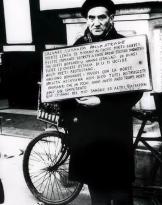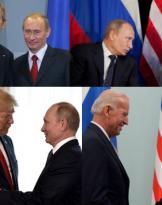For a year now, the Defense Committee of the Chamber has been focusing on the reform of the system of representativeness of military personnel, a subject that mainly appeals to professionals, but which is of vital importance for all military personnel.
This topic became very topical when, even forcing the hand, the CoCeR, together with the police unions, announced a possible strike in case the economic progressions linked to the level promotions and seniority had not been released.
That form of protest, atypical and not foreseen by the current legislation, not even for the police forces that are unionized, has irritated the government that has inserted a rule (later withdrawn) in the law of stability to make a cut to the representation, but which in fact led all the political forces to present their own legislative proposals to the Defense Commission of the Chamber.
The current system has in itself the serious flaw of self-referentiality both for the mode of election, not very participatory, and for the limited nature of the tools available to form consensus and guide the action of confrontation with the General Staff.
Think of an assembly of 63 people of the same level without a clot or a well-defined political guide: the search for an agreement must take place from time to time and is always difficult and dispersive.
It has an easy game that through it promotes only its own image by playing on the difficulties of action, by favoring its own or partisan interests in order to seek consensus in any political party.
If we add to this the cost borne by the administration, the impossibility of obtaining sanctions against those who attempt (sometimes successfully) to limit the mandate, especially against the local delegates, and those who elude the few prerogatives of the Representation, the picture that follows is a weak institution, in my opinion also "anarchist" that must be completely reorganized and strengthened.
The ruling by the EU Human Rights Commission of the EU, which sanctioned France for not granting the rights of association for the military, is also of great importance, as is also the case in Italy.
By framing the proposals presented by the Defense Commission, we are faced with three different possibilities:
Strengthening of the current system, with more protection and extensive fields of expertise (proposal advanced by PD deputies)
Double track system: external association that supports and guides the internal representation, also in this case with greater prerogatives (two different proposals signed by other PD members and FI members)
Syndicated police union with civil status (advanced by Sel, 5stelle and FI)
Before the current experience I was not attracted by this last solution, which now seems to me the best possible, having been able to verify some uneven and sometimes damaging behaviors not only of the simpler rights of the staff but also of common sense, which often they also escape from the top, that military representation can only limit itself to signaling but not effectively opposing.
The choice of unionization will appear in the eyes of so many colleagues a diminutive of our status, and also anti-historical in consideration of the marginal role to which the unions have been relegated by the current government.
In the first case it will only be a question of breaking down a fence of prejudice. Nothing will vary in status but the great advantage will be the definition of roles and prerogatives, and the respect of which will allow a better relationship today between administration and staff representatives and a real, continued and widespread protection of the military.
The current minor appeal of the union stems from the positions of unreasonableness that often the most extreme wing has had towards the counterparts, often with political motivations rather than defense of the staff. A modern trade union must do without this and concentrate, in my view, in pursuing the improvement of conditions and respect for the worker (in this case military) by guaranteeing the employer (the Armed Forces) to reach the common goal that it is the defense of the country.
If as I hope the choice of politics, looking to the future, will be unionization, we will have to face a period of acclimatization, almost of vacatio of representativeness, at the end of which, however, we will have reached modernity in terms of rights and fairness of treatment for military personnel and with it greater awareness of roles and responsibilities.
CF Antonio Colombo (Delegate cat A Central Council of RM)












